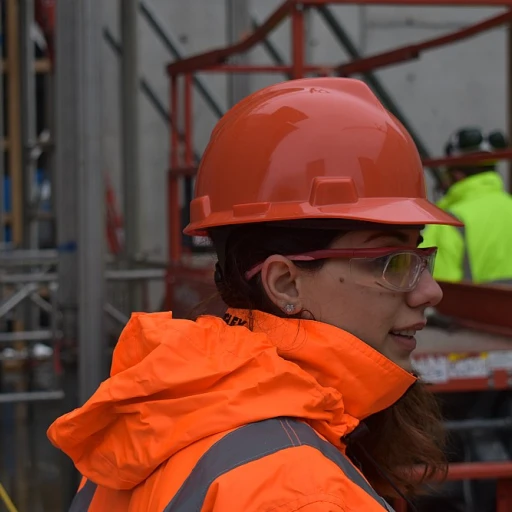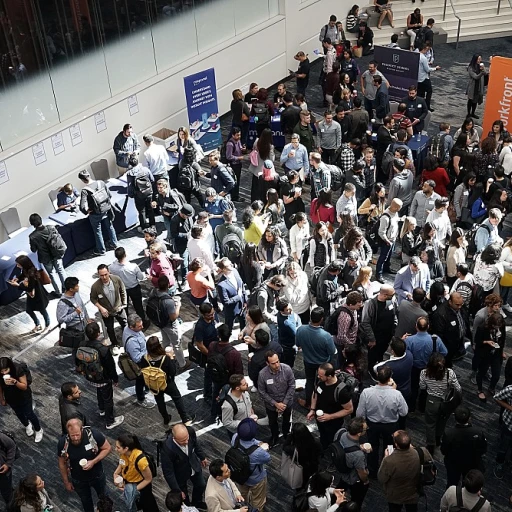
Understanding the Purpose of Pre-Screening Interviews
Unraveling the Core Aim of Pre-Screening Interviews
The concept of pre-screening interviews serves as a stepping stone in the job interview process, laying the groundwork for a more detailed examination later on. It is designed to streamline the process for both the hiring team and prospective candidates. By conducting a screening interview, hiring managers aim to efficiently narrow down the pool of candidates to those best suited for the role.
This preliminary step is essential for identifying whether a candidate has the required basic skills and qualifications to fulfill a job position. It helps clarify aspects like a candidate's experience, salary expectations, and availability, ensuring they align with the company's needs and culture.
A pre-screening interview often includes a series of tailored questions about the candidate's background, skills, and interest in the role. These questions help the interviewer evaluate if the candidate is a good fit for the position and company culture. Much like in detailed interviews, effective pre-screening interviews focus on efficiency and relevance.
Usually conducted over the phone or through virtual platforms, these interviews save time and resources while still offering a critical layer of assessment. They help set the stage for future stages in the hiring process, allowing the hiring manager to better customize further inquiries.
Emphasizing how these interviews serve as a critical component for both evaluating and discerning the ideal candidates, it’s clear that mastering the art of the pre-screening interview is crucial in today's hiring landscape. Check out some essential questions used in various job contexts to further understand the dynamics and expectations within screening processes.
Common Formats and Platforms
Embracing Different Interview Styles and Formats
In today's fast-paced hiring process, understanding the variety of pre-screening interview formats can significantly enhance your ability to stand out as a candidate. Screening interviews may come in different shapes, just like any other job interview, which could be a foundational part of identifying the right fit for both the role and company culture. One of the most common methods is the phone interview. This quick chat can provide employers with a sense of your communication skills and a preliminary insight into your experience. Phone screens are often first-hand interactions allowing hiring managers to assess if you're potentially a good fit for the team. Video interviews have gained traction, offering a more interactive and personal touch while retaining the convenience of remote access. They allow companies to assess not only your answers but your enthusiasm and how you might fit within the company culture. More traditional formats may still be used in combination with newer styles. Understanding these differences and preparing accordingly shows adaptability, which is a sought-after quality. By familiarizing yourself with these screening formats, you can better position yourself during the recruitment process. Identifying which aspects of your skills and experience will shine through and preparing accordingly is a strategic way to navigate the screening process. Ultimately, being versatile in your readiness for various interview formats allows you to showcase your fit for the role and the organization. For more insights into adapting to the changing landscape of job interviews, explore further.Key Skills and Qualities Employers Look For
Unveiling Key Competencies: The Skills Employers Seek
As a candidate preparing for the pre-screening interview, understanding what the company seeks in a potential hire is imperative. Employers are not only looking for candidates who meet the technical demands of the role but also those who fit well within the company culture and team dynamics. Here’s a closer glance at essential skills and qualities highly valued in the screening process:
- Communication Abilities: Clear, concise, and articulate communication is vital. Whether it’s a phone interview or a digital screening, conveying your thoughts effectively shows you can mesh within any work environment.
- Problem-Solving Skills: Demonstrating an analytical mindset that can tackle challenges provides hire managers with reassurance that you’ll make sound decisions under pressure.
- Adaptability: In the constant ebb and flow of modern business, the ability to adjust and thrive under changing conditions is indispensable.
- Experience and Expertise: While skills can often be developed, relevant job experience unmistakably signals to employers that you are capable of handling the role. Highlighting your experience can distinguish you from other candidates.
- Cultural Fit: Understanding and aligning with the company culture can make a candidate an all-around good fit. Exhibiting adaptability, enthusiasm for the company’s mission, and teamwork can enhance your profile.
Pre-screening interviews serve as an opportunity for both you and the hiring manager to determine suitability for the position and the company's culture. By showcasing these key skills, you are more likely to proceed favorably through the pre screening process while also considering if the opportunity aligns with your career goals.
Preparing Effectively for a Pre-Screening Interview
Steps to Successfully Prepare for a Pre-Screening Interview
In the ever-evolving landscape of the interview process, preparing for a pre-screening interview requires more than just brushing up on your resume. Effective preparation can make a key difference in leaving a lasting impression on the hiring manager and securing a spot for the next round of interviews. Firstly, it's essential to clarify the specifics about the interview mode. Is it a phone interview, or will it take place on a digital platform? Understanding the platform helps in setting up the necessary technology and creating a distraction-free environment, allowing candidates to focus wholly on the conversation. Spend ample time researching the company. This involves delving into their mission, values, and current projects. Such knowledge demonstrates genuine interest and can effortlessly align your skills and experience with the job role, highlighting you as a good fit for the team. Next, deeply reflect on the role itself. By assessing the role’s requirements and comparing them with your experience, you construct a narrative that showcases your compatibility. Highlight relevant skills and provide examples of past achievements that resonate with the position. Prepare for common screening questions that might come your way. Whether it's detailing your previous work experience or discussing salary expectations, having structured responses ready can streamline your thoughts, reducing interview jitters. This preparation can provide a smoother flow in your communication, leaving minimal room for awkward pauses. Finally, practice makes perfect. A great way to prepare is by conducting mock interviews with a friend or mentor. This simulates the interview environment and provides insights into potential areas of improvement, boosting your confidence. Prepping for a pre-screening interview may seem daunting, but with strategic preparation, you position yourself as a compelling candidate ready to tackle any questions that hiring managers send your way. Adequate preparation sets you on the right path to navigate through the screening process successfully.Common Questions and How to Answer Them
Addressing Typical Concerns and Crafting Effective Responses
When embarking on a pre-screening interview, candidates can often find themselves facing a wide range of screening questions. These questions aim to gauge whether an individual is a good fit for the position and company. It’s crucial to understand how to answer these effectively to progress to the next stage in the hiring process. One of the most common categories in an interview is the background and experience inquiries. Interviewers might want to know about your previous work, relevant skills, or positions held. Share impressive achievements that demonstrate your qualifications and readiness for the job. Stick to specifics, as this shows the hiring managers your capability to fulfill the role’s requirements. Finance-related inquiries may also arise. It's an appropriate time to discuss salary expectations. This can sometimes be a delicate part of the interview process, but remaining honest is key. Research both industry standards and the company’s pay range to provide a well-informed response, showing your respect for the know-how and acknowledgment of company culture. Other interview questions could revolve around your understanding of the potential role and company. Take the time to learn about the organization’s values and work environment to reflect alignment with their objectives. Express how you foresee yourself contributing to their team, and highlight why your unique skills make an excellent match for the position. For instance, in a phone interview, clarity and conciseness are crucial. Given the time constraints of a phone screen, organize your thoughts beforehand. Preparing examples ahead of time, which showcase your adaptability for the role, can significantly enhance your responses. Candidates could face questions about their availability, willingness to relocate, or how they handle tight deadlines. Employers will appreciate candidates who demonstrate flexibility and problem-solving abilities. Every piece of this process is an opportunity to convince the hiring manager that you are the right person for the job. Use each question to the fullest by tailoring your responses to reflect your genuine enthusiasm and fit for the role.Following Up After the Pre-Screening Interview
Post-Interview Actions to Demonstrate Genuine Interest
Once the pre-screening interview concludes, the journey is not yet over. Taking strategic steps can greatly influence your standing in the hiring process. Here’s how you can effectively follow up after this crucial initial stage:- Send a Thoughtful Thank-You Email: Within 24 hours of your pre-screening interview, send a personalized thank-you email to the hiring manager or interviewer. Express gratitude for the opportunity to discuss the role and reiterate your enthusiasm for being considered. Highlight a specific moment from the interview that stood out, demonstrating your engagement and recall.
- Reaffirm Your Fit: Use the follow-up communication to subtly reinforce why you are a "good fit" for the position and the company culture. Reference key skills or experience discussed that align with the employer’s needs, and briefly touch upon how they can add value to the company.
- Include Any Supplemental Information: If there were any interview questions that you weren’t able to thoroughly address during the screening, the follow-up email is a good place to provide insightful responses. This shows proactive commitment and clarifies any uncertainties.
- Connect on Professional Platforms: Adding the interviewer on professional networks like LinkedIn can enhance your visibility and show your interest in joining the "team" and understanding their "work environment" better. This can pave the way to stay informed about future "hiring" updates.
- Patiently Wait for Feedback: After you've sent your follow-up email, give the "hiring manager" some "time" to review your "candidate" profile, compare with other candidates, and coordinate internally about the next steps in the "interview process." Patience is crucial as the "company" determines the right "good fit" for the role.













